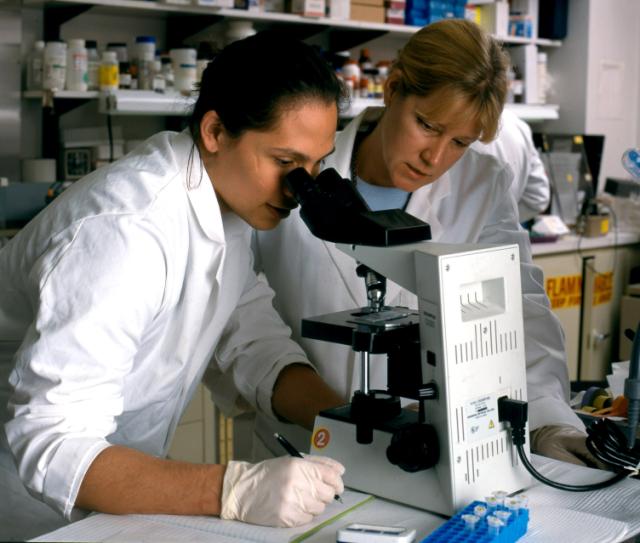The human immunodeficiency virus infection and acquired immune deficiency syndrome (HIV/AIDS) remains to be one of the most widespread diseases today. What makes this epidemic an even more unfortunate case is that scientists around the world have yet to develop an accessible cure successfully.
Some of the earliest recorded HIV-1 infections were from patients who have since passed away and whose blood and tissue samples were taken decades ahead of the 1970s. Over a decade later, the first cases of AIDS known to men were recorded. In the United States, AIDS was first recognized as an epidemic in 1981 that meant that extensive research and funding to find a cure started from here.
However, scientists and researchers around the world have yet to find one complete cure for HIV/AIDS despite decades of studies and clinical trials. On a good note, humanity has come a long way when it comes to treatment strategies for patients with HIV infection.
One of the most common regimens is antiretroviral therapy where patients only need to take one tablet a day to treat their HIV infection. Recently, researchers from the University of Arizona College of Medicine—Tucson recognized how far HIV treatments have developed allowing patients to live longer and in a “non-frail state.”
“We have shown that years of antiretroviral therapy can return patients to a non-frail state,” Dr. Stephen A. Klotz said (via Medical Express). “In addition, prolonged antiretroviral therapy restores cellular function and numbers of cells adversely affected by HIV.”
While the ultimate HIV/AIDS cure has not been developed yet, major developments were still announced earlier this year. A second individual, only identified in the news as the London patient, was declared HIV-free after receiving a bone marrow transplant. It was deemed huge progress and seen as proof that the epidemic can be cured.
However, government and health institutions around the world still have a great deal of work to be done. While the efforts of developing a cure continue, preventive measures are being pushed to alleviate the spread of the virus.



 NASA and Roscosmos Chiefs Meet in Florida to Discuss Moon and ISS Cooperation
NASA and Roscosmos Chiefs Meet in Florida to Discuss Moon and ISS Cooperation  Is space worth the cost? Accounting experts say its value can’t be found in spreadsheets
Is space worth the cost? Accounting experts say its value can’t be found in spreadsheets  Astronomers have discovered another puzzling interstellar object − this third one is big, bright and fast
Astronomers have discovered another puzzling interstellar object − this third one is big, bright and fast  FDA Adds Fatal Risk Warning to J&J and Legend Biotech’s Carvykti Cancer Therapy
FDA Adds Fatal Risk Warning to J&J and Legend Biotech’s Carvykti Cancer Therapy  Eli Lilly’s Inluriyo Gains FDA Approval for Advanced Breast Cancer Treatment
Eli Lilly’s Inluriyo Gains FDA Approval for Advanced Breast Cancer Treatment  SpaceX Prioritizes Moon Mission Before Mars as Starship Development Accelerates
SpaceX Prioritizes Moon Mission Before Mars as Starship Development Accelerates  Neuren Pharmaceuticals Surges on U.S. Patent Win for Rare Disorder Drug
Neuren Pharmaceuticals Surges on U.S. Patent Win for Rare Disorder Drug  Blue Origin’s New Glenn Achieves Breakthrough Success With First NASA Mission
Blue Origin’s New Glenn Achieves Breakthrough Success With First NASA Mission  SpaceX Pivots Toward Moon City as Musk Reframes Long-Term Space Vision
SpaceX Pivots Toward Moon City as Musk Reframes Long-Term Space Vision  Lost in space: MethaneSat failed just as NZ was to take over mission control – here’s what we need to know now
Lost in space: MethaneSat failed just as NZ was to take over mission control – here’s what we need to know now  SpaceX’s Starship Completes 11th Test Flight, Paving Way for Moon and Mars Missions
SpaceX’s Starship Completes 11th Test Flight, Paving Way for Moon and Mars Missions  Tabletop particle accelerator could transform medicine and materials science
Tabletop particle accelerator could transform medicine and materials science  Cogent Biosciences Soars 120% on Breakthrough Phase 3 Results for Bezuclastinib in GIST Treatment
Cogent Biosciences Soars 120% on Breakthrough Phase 3 Results for Bezuclastinib in GIST Treatment 































